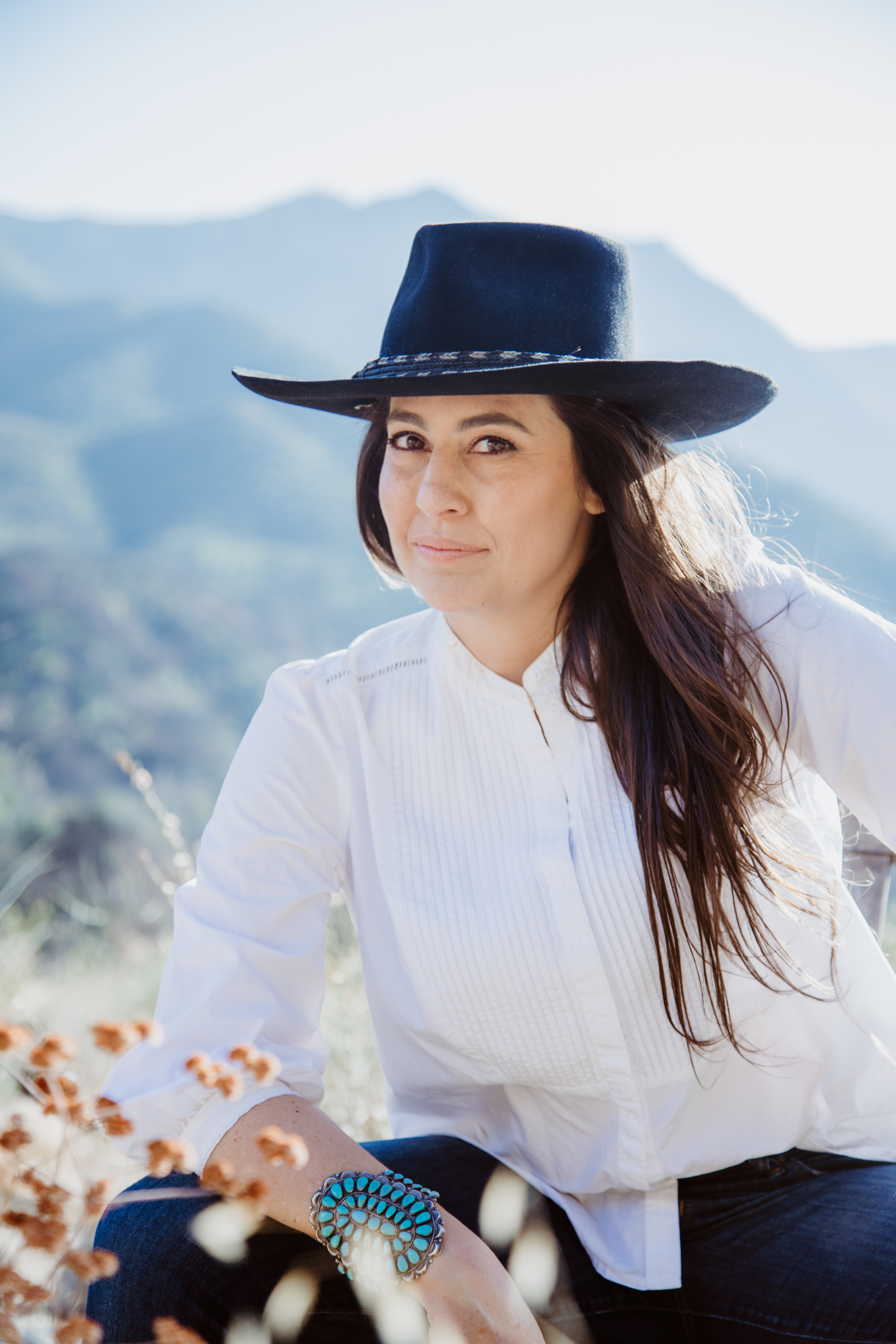As a part of my series about “Mental Health Champions” helping to normalize the focus on mental wellness, I had the pleasure to interview Laura Durenberger of The Mindful Mom Blographer, a lifestyle blog that aims to help others adopt a mindset of reduction through mindful and intentional living, minimalism, and zero waste living. Through ‘reducing’, Laura hopes to show that it’s not about taking on more to achieve a harmonious balance in life, but by simply removing in a sustainable way. Laura is also a nature photographer, and uses her nature photos to create simple 2-minute self-guided meditationsto help promote stress and anxiety relief to anyone who needs it.
Thank you so much for joining us! Can you tell us the “backstory” about what brought you to this specific career path?
For as long as I can remember, I’ve dealt with anxiety. It was honestly a way of life and I didn’t know any different. Fast forward through years of therapy, on and off of anti-anxiety medication, and trying to ‘get rid of it’, that the anxiety reached its peak after my son was born.
The postpartum anxiety I dealt with was unlike anything I’d ever known. It was crippling at best, and terrifying at its worst. Luckily, I had a great support team through my midwife and therapist, and with their help got back on medications through a psychiatrist.
In dealing with the anxiety this time around, I started looking for other methods (in addition to therapy and medication) that I could use during times of anxiety. That’s when I found mindfulness and meditation — specifically, guided meditation.
To make a long story short, I’m a nature photographer, and I started using my photography to create short guided meditations that people like me could use in times of stress and anxiety. I ended up getting an exhibit showcase at a large medical facility, and after it was over, realized I wanted to share these meditations with more people. And that’s how I started The Mindful Mom Blographer.
According to Mental Health America’s report,over 44 million Americans have a mental health condition. Yet there’s still a stigma about mental illness. Can you share a few reasons you think this is so?
There are a couple of reasons why I believe there is still a mental illness stigma even though they are so incredibly common.
The first reason is because I think we fear what we don’t understand. And when we don’t understand what is going on with ourselves, it can be scary and we want to just shut it down. Or, if we do try to explain it to someone else who may not be familiar with mental illness (or uncomfortable by them), if they react in what we perceive as a negative way, their reaction could make us feel embarrassed, isolated, and shamed. So we keep our struggles tucked away inside, for fear of what is bothering us, for fear of what we don’t ourselves understand, and for fear of how other people are going to react.
The second reason, in some ways, stems off from the first reason, and that is that we don’t want to feel different from others. You know that wonderful connection with someone when you first realize you have something in common? We as humans crave that connection. So when we have something going on inside of us that we fear could be something that makes us different (whether this knowing is conscious or not), it can make us hold on to the things that are bothering us.
And if there is one thing I’ve learned (maybe one of the biggest things I’ve learned) about my anxiety, it is that by holding on to it and trying suppress or fight it only gives it fuel and makes it a lot worse.
The third and final reason I think there is a stigma around mental illness has to do with us not wanting to deal with the illness ourselves. When we are physically sick with a cold, what do we try to do? We try to do whatever we can to get rid of it, because we hate feeling uncomfortable and sick. The same can be said (at least in my experience) about mental illness.
When I’m feeling really anxious, it is uncomfortable and I don’t like it. So my first reaction is to try and do whatever I can to ‘fix it’ or ‘make it go away’. But I’ve had to learn, (and it took me YEARS), that illnesses, physical or mental, don’t always work like that. And while we can do things to make us more comfortable, sometimes we just have to go through them and be uncomfortable for a little while.
So when we’re dealing with a mental illness, we don’t want to talk about it because that can confirm to ourselves that it is real, which makes it much harder to suppress it.
Can you tell our readers about how you are helping to de-stigmatize the focus on mental wellness?
I created a series on my blog called ‘Anxiety Stories’, which launched at the start of 2019. My goal with the series is to interview people who are willing to bare it all about their experience with anxiety. By doing this, I hope others realize that they are not alone in their mental illnesses (in this case, anxiety), and that everything they are experiencing is a normal part of the illness. By having a diverse group of interviewees, I can showcase that normal, everyday people experience and deal with this, and are managing to live a very normal life. I also hope it can give people courage to take care of themselves, get the help they may need, and also talk about their struggles and one-by-one break down the mental illness stigma.

Was there a story behind why you decided to launch this initiative?
Through my blog and social media, I decided to face the fact that I have anxiety by talking about it. Whenever I do, I receive comments or messages from people who mention they’re going through the same or a very similar thing. Every. Single. Time. I came to realize mental illness is so incredibly common, and I wanted to come up with a way that I could show others that fact without calling anyone out who wanted to remain private.
In your experience, what should a) individuals b) society, and c) the government do to better support people suffering from mental illness?
First, I think we need to make mental health assistance more accessible. Years ago, when I first tried to get a therapy appointment through my insurance, there was a two month wait! That is unacceptable. Even now that I have established providers, it can sometimes take a couple of weeks to get in with my therapist or psychiatrist. That may not seem like a long time, but when you’re in the middle of an anxiety spiral, for example, that length of time can seem like an eternity. I don’t have the answers to how to do that, but that is one thing I think needs to be worked one.
Second, as scary as it is, I think we as individuals and society need to get better at talking about our mental illnesses. I truly believe that if we can start having open conversations about it, that we can see it is so normal, and it doesn’t mean there is ‘anything wrong with you!’.
Third, we as a society need to start prioritizing mental health as much as we do physical health. Without getting too off topic, we as a society value being busy. Getting into the glorification of busy is a whole other discussion, but sometimes we need a break for our own sanity, and the constant ‘go, go, go’ mentality is not always healthy. We shouldn’t be embarrassed to reduce the number of things we commit to, or to give ourselves a mental health rest day (such as we do for our physical health).
What are your 6 strategies you use to promote your own wellbeing and mental wellness? Can you please give a story or example for each?
- Identify triggers, and prioritize mental health and wellbeing just as much as physical health (although, to be honest, a lot of those things overlap such as diet and exercise): I’ve learned through trial and error that caffeine and sugar are big triggers of my anxiety, so I’ve completely cut out caffeine, and significantly cut back on sugar. Each body is different, and each body will have different triggers. It’s no different than physical health where certain exercises will trigger a bad back or knee, for example.
- Getting out in nature: getting outside for even just a few minutes can lift my mood and provide some mental clarity and a chance to breathe.
- Journal: I started actively journaling last year, and it has been a great tool for working through anxious and/or intrusive thoughts. Journaling is great because it forces your mind to slow down, as you can’t write as fast as your mind can think. It also is a great place just to ‘dump’ out any thoughts that aren’t serving you!
- Acupuncture: I try to go to my local community acupuncture (POCA — affordable acupuncture) clinic weekly or every other week. Not only does it provide some quiet alone time where I can relax, meditate, or even catch a short nap, it helps tremendously with my anxiety.
- Mindfulness and Meditation: This is the one I probably struggle with the most, but it is incredibly beneficial, and there is countless research to back it up. For meditation, I use Insight Timer which is free and my short 2-minute self- guided mindfulness meditations, but there are other countless other meditation options on YouTube, through a Google search, or through the app store. For mindfulness, the quickest way to get into the moment is to pay attention to things you are sensing (what do you see, hear, smell, taste, feel?)
- Reduce: Having an incredibly busy life wasn’t working for me or my anxiety. So I made the deliberate decision to start to reduce the things that weren’t bringing value to my life. I did this through mindfulness and meditation for my mental clutter, physical belongings through decluttering, cutting down on commitments on my calendar, and more. The great thing about reducing and getting into a reduction mindset, is that it starts to flow into other areas of your life.

What are your favorite books, podcasts, or resources that inspire you to be a mental health champion?
My absolute favorite anxiety book is The Chemistry of Calm by Henry Emmons MD. This book was recommended to me by my therapist, and it is fantastic. The author goes into a full body holistic view of anxiety, what is happening in our brains and body to cause anxiety, and gives tons of tips on how to help manage it through diet, exercise, mindfulness, and meditation.
I also really love First, We Make the Beast Beautiful: A New Journey Through Anxiety by Sarah Wilson. Similar to The Chemistry of Calm, Wilson talks about what is going on with our brain, and shares useful tips through her personal experience on how to manage through anxiety.
A quick note about the books — I would be going against my zero waste/environmental values if I didn’t mention to look for the books through your local library, buying electronically, or local second-hand before buying new.
As for podcasts, I love ‘The Lively Show with Jess Lively’, and ‘Oprah’s Super Soul Conversations’. These both get into more of the spiritual realm and connecting with your intuition versus your ego, but I have found them very helpful in learning how to turn inwards and tuning out the mind.
Thank you so much for these insights! This was so inspiring!


